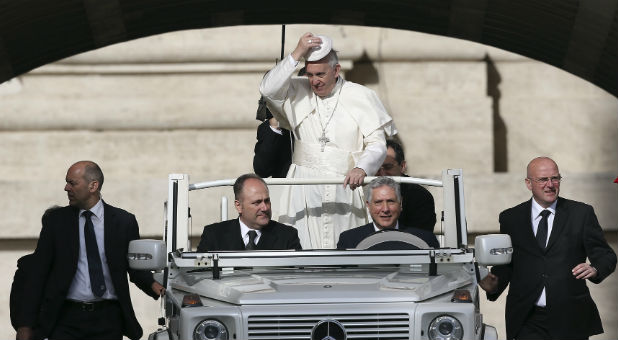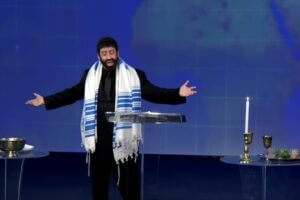Pope Francis on Friday called for a Church that was less strict and more compassionate towards “imperfect” Catholics, such as those who divorced and remarried, saying “no one can be condemned forever.”
Francis said gays should be respected but firmly re-stated the Church’s position that there are “absolutely no grounds” to equate gay unions to heterosexual marriage.
In a 260-page treatise called “Amoris Laetitia,” (The Joy of Love), one of the most eagerly awaited pronouncements of his pontificate, Francis quoted Martin Luther King, Argentine Poet Jorge Luis Borges and even the 1987 Danish cult film Babette’s Feast to make his case for a more merciful and loving Church.
The keenest anticipation centered on what he would say about the full re-integration into the Church of Catholics who divorce and remarry in civil ceremonies.
Under current Church teaching they cannot receive communion unless they abstain from sex with their new partner, because their first marriage is still valid in the eyes of the Church and they are seen to be living in an adulterous state of sin.
The number of divorces has risen markedly in recent decades in most of the leading economies grouped in the OECD. About 42 percent of marriages in England and Wales ended in divorce in 2013, according to an estimate by the UK Office for National Statistics.
“No one can be condemned forever, because that is not the logic of the Gospel! Here I am not speaking only of the divorced and remarried, but of everyone, in whatever situation they find themselves,” the pope said.
Presenting the document at a packed Vatican news conference, Cardinal Christoph Schoenborn of Vienna, called it “a classic case of the organic development of doctrine,” which he described as being a continuation of theological thought without rupture with the past.
Progressives have proposed the use of an “internal forum” in which a priest or bishop work with a Catholic who has divorced and remarried to decide jointly, privately and on a case-by-case basis if he or she can be fully re-integrated and receive communion.
Discernment, Not Rigid Rules
Francis seemed to embrace this view, saying he could “not provide a new set of general rules … applicable to all cases”, but he called for “responsible, personal and pastoral discernment of particular cases”.
Father James Bretzke, professor of moral theology at Boston College, said while Francis did not explicitly give a green light for remarried Catholics to return to communion, “the dots are pretty close together, you can connect them reasonably easily and conclude that he is saying this is a possibility.
“If he’s not opening the door, he is at least showing you where the key under the mat is.”
The document appeared to be partly aimed at the pope’s own bishops, saying while basic tenets of the faith remain, there had to be more consultation and debate within the Church about how they are applied locally in the type of decentralized institution Francis has called for.
Francis said he understood those conservatives who “prefer a more rigorous pastoral care which leaves no room for confusion” but the Church should be more attentive to the good that can be found “in the midst of human weakness”.
“The Church turns with love to those who participate in her life in an imperfect manner,” he said, including in this category those Catholics who are cohabiting, married civilly or are divorced and remarried.
Conservative American Catholic author George Weigel said he did not see an opening to the divorced and remarried but rather “a call for the Church to be creative in integrating people in difficult situations”.
The document, formally known as an Apostolic Exhortation, followed two gatherings of Catholic bishops, or synods, that discussed family issued in 2014 and 2015.
In other sections, Francis said young people had to be better prepared for a life-long commitment, praised the “erotic dimension” of love within marriage and said the Church needed a “healthy dose of self-criticism” for in the past preaching that procreation was the “almost exclusive” reason for marriage. {eoa}
© 2016 Thomson Reuters. All rights reserved.
See an error in this article?
To contact us or to submit an article






















